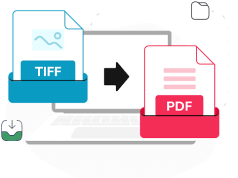ChatGPT as an AI Model
ChatGPT as an AI Model
ChatGPT as an AI Model
Introduction
The rapid advancement of artificial intelligence (AI) has led to the development of various AI models that have revolutionized how humans interact with machines. Among these models, ChatGPT stands out as a prominent example of natural language processing (NLP) technology. ChatGPT, based on the GPT-3.5 architecture, has gained significant attention due to its ability to generate human-like text and perform a wide range of language-related tasks. In this exhaustive essay, we will delve into the intricacies of ChatGPT, exploring its architecture, capabilities, applications, ethical considerations, and its potential impact on various industries.
Understanding ChatGPT’s Architecture
Transformer Architecture
ChatGPT is built upon the Transformer architecture, which has become the foundation for many state-of-the-art NLP models. The Transformer architecture is characterized by its attention mechanism, allowing the model to focus on different parts of the input text, enabling it to capture contextual information efficiently.
Pre-training and Fine-tuning
ChatGPT undergoes a two-step training process: pre-training and fine-tuning. During pre-training, the model learns from a vast corpus of text from the internet, acquiring language knowledge and context. In the fine-tuning phase, it is tuned on specific tasks or domains to make it more useful and safe for real-world applications.
Capabilities of ChatGPT
Text Generation
ChatGPT’s primary capability is text generation. It can generate coherent and contextually relevant text, making it useful for various natural language generation tasks such as content creation, storytelling, and more.
Language Translation
ChatGPT can translate text from one language to another, facilitating cross-lingual communication and making it a valuable tool for global businesses and individuals.
Question Answering
The model is adept at answering questions based on the input it receives, making it suitable for chatbots, virtual assistants, and customer support applications.
Conversational Interaction
ChatGPT can engage in natural and context-aware conversations, making it a key component of chatbots and virtual assistants that aim to provide human-like interactions.
Text Summarization
It can summarize lengthy texts, condensing information into concise, coherent summaries, which is particularly useful for content curation and information retrieval.
Applications of ChatGPT
Customer Support
Businesses are increasingly using ChatGPT-powered chatbots to provide round-the-clock customer support, improving user experiences and reducing operational costs.
Content Generation
Content creators leverage ChatGPT to generate blog posts, articles, and other written content, streamlining content production. ChatGPT as an AI Model
Language Translation
ChatGPT is employed for automatic translation services, breaking down language barriers in international communication. ChatGPT as an AI Model
Healthcare
In the healthcare sector, ChatGPT can assist with patient queries, provide medical information, and even aid in medical research by summarizing research papers.
Education
Educational platforms use ChatGPT to create personalized learning experiences, answer student questions, and provide explanations for complex topics. ChatGPT as an AI Model
Ethical Considerations
Bias and Fairness
One of the major ethical concerns with ChatGPT is the potential for bias in its responses, as it can inadvertently generate offensive or biased content due to the biases present in its training data. ChatGPT as an AI Model
Misinformation
ChatGPT can generate false or misleading information, which poses a challenge in the fight against fake news and disinformation. ChatGPT as an AI Model
Privacy
The use of ChatGPT in various applications raises concerns about data privacy, as sensitive information may be shared with the model unknowingly.
Accountability
Determining accountability in cases where ChatGPT generates harmful or unethical content is a complex issue, as the responsibility lies with both the developers and users.
Impact on Industries
Content Creation
ChatGPT has the potential to revolutionize content creation by automating the generation of articles, reports, and marketing materials, potentially disrupting traditional content creation industries.
Customer Service
The use of ChatGPT in customer service can lead to cost savings for businesses and improved customer satisfaction, making it a game-changer in the service industry.
Healthcare
In healthcare, ChatGPT can assist medical professionals, reduce administrative work, and enhance patient experiences, leading to more efficient healthcare delivery.
Education
ChatGPT’s applications in education can make learning more accessible and personalized, transforming the way knowledge is disseminated and acquired.
Conclusion
ChatGPT, as an AI model, represents a significant milestone in natural language processing and AI technology. Its architecture, capabilities, applications, ethical considerations, and potential impacts on various industries are extensive and varied. While it holds immense promise, the responsible development and deployment of ChatGPT are essential to mitigate potential risks and ensure that it benefits society at large. As AI technology continues to evolve, it is crucial to stay vigilant, address ethical concerns, and harness the power of ChatGPT for the betterment of humanity. 0 0 0. ChatGPT as an AI Mode, lChatGPT as an AI Model
You May Like:







